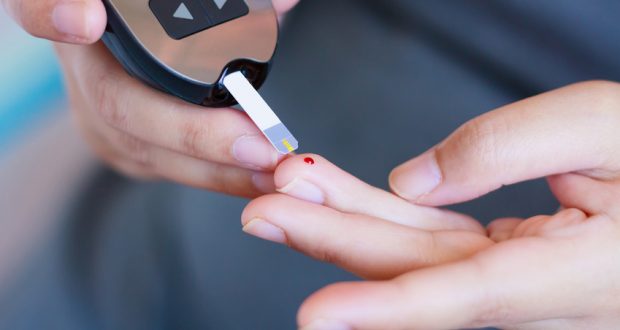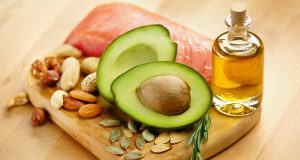Unhealthy Food Choices
When the body consumes a simple carbohydrate, it responds the same way as if it had consumed sugar. There is no additional nutrition available to slow the absorption of the resulting sugars into the bloodstream and therefore, blood sugar rises.
The following simple carbohydrates should be avoided: sodas, baked goods made with white flour (breads, muffins, cakes, cookies, etc.), cereals, pasta, and prepared fruit juices/concentrates. These foods have little to no nutritional value and will only cause blood sugar to spike.
There are other carbohydrates (known as complex carbs) that have less of an impact on blood sugar. Complex carbohydrates are converted into sugar more slowly, giving the body a better chance to regulate the amount of sugar in the blood. Complex carbohydrates to enjoy are: whole grain breads, quinoa, legumes (beans, lentils, peas), nuts, whole fruits and vegetables.
The best way to enjoy carbs is in combination with foods that will help to slow their absorption even more. If the complex carbohydrate is paired with fiber, protein, or fat, it is absorbed even more slowly and blood sugar will remain more stable.
Too Little Sleep
Sleep loss can have a devastating effect on diabetics. The body’s reaction to lack of sleep can mimic insulin resistance. Insulin resistance occurs due to the cell’s inability to utilize insulin. This results in high blood sugar. Imagine if your blood sugar was spiking every single night simply because you were having trouble sleeping… yikes!
Develop a sleep schedule and stick to it, pay attention to what you eat and drink before bed (caffeine, alcohol, etc.), create a soothing bedtime ritual in order to relax, get comfortable (cool, dark room and comfortable mattress and pillow), and limit napping during the day (10-30 minutes in the afternoon at most.)
Not Getting Enough Exercise
Exercise increases your insulin sensitivity, so your cells are able to make better use of any present insulin and glucose in your body. When your muscles contract during exercise, it stimulates a mechanism allowing your cells to metabolize the glucose in your blood whether insulin is present or not.
The American Diabetes Association recommends some form of exercise at least 3 days a week, and not go more than 2 days in a row without exercising. Think of this journey as a marathon instead of a sprint. You are more likely to succeed long-term if you start slow. Try adding 15 minutes of physical activity per day, or not indulging in your daily after-dinner treat. Make two new goals per week, meet them, and then build on them.
Stress
When was the last time you stopped to consider how your stress level may be impacting your blood sugar? As part of the body’s response to stress, the hormone cortisol is released. Cortisol is actually known as the body’s “stress hormone.” It raises blood sugar and instructs the body’s cells to either absorb that extra glucose for immediate energy, or store it for later. Frequent high cortisol levels can contribute to insulin resistance, increasing risk of Type II diabetes.
Take a few moments every day to simply rest and breathe. By practicing stress-reduction techniques, we can lower the toll on our minds and bodies. Meditation and prayer are two more ways to calm your spirit and relax. Or give yoga a try to combine exercise and meditation in one. Keep at it until you find relaxation techniques that work for you!
Smoking
Smoking is not a healthy habit for anyone, but diabetics are at increased risk of suffering smoking’s dangerous effects. Research has found that A1C levels rise with repeated exposure to nicotine. Long-term elevated blood sugar levels increase the risk of serious complications like kidney failure, heart attack, or stroke.
Medications
Be sure to take any diabetes medication at the correct time of day and in the exact dose as prescribed by your physician. If you have trouble remembering to take your medications, try setting an alarm on your cell phone to remind you.
Other medications like statins (to control cholesterol), steroids (to control asthma), and diuretics/water pills (to control blood pressure) can all raise blood sugar levels. If you use any of these other medications, be sure to track your blood sugar even more closely. If you notice that your blood sugar is trending high, speak with your physician; some of your prescriptions may need to be adjusted.
Not Brushing and Flossing
If you have diabetes, you’re more likely to get gum disease. Like all infections, gum disease may cause blood sugar levels to rise. This compromises your immune system and can make other infections and secondary infections more likely. Brush and floss daily, and some find it helpful to use an antiseptic mouthwash, as well. Be sure to visit your dentist for regular check-ups and cleanings, too.
Infection
Whether you’re fighting the flu, the common cold, or even a skin infection, the germ-fighting chemicals released by the body can cause blood sugar to become unstable. Monitor blood sugar closely and be sure to drink plenty of water as it will flush the excess glucose in the blood, as well as, help your body fight the infection. These 10 foods help to maximize your immune system.
Artificial Sweeteners
Use artificial sweeteners with caution. Science is now showing us that artificial sweeteners could be just as harmful to the body as real sugar. Heck, some artificial sweeteners literally destroy your body from the inside out on a cellular level. Aspartame, anyone? Sucralose, saccharin, and acesulfame are all names for artificial sugar and can wreak havoc in the body.
Skipping Breakfast
Breakfast truly is the most important meal of the day, especially for diabetics. Not only does it rev your metabolism for the day, it gets your blood sugar off to a stable start.
A good balanced breakfast includes a moderate amount of protein and plenty of healthy fats and fiber. Fiber is great for diabetics because it makes you feel full and it helps even out your blood sugar. Protein and fat, much like fiber, also gives you the feeling of fullness and satisfaction. Including fruits and vegetables in your breakfast is a great way to get a few healthy carbs without eating a lot of calories.
Sources:
http://www.webmd.com/diabetes/ready-to-lower-17/causes-blood-sugar-spike
www.rd.com/health/conditions/blood-sugar-levels/
 Diabetic Kitchen
Diabetic Kitchen





3 comments
Pingback: Blood Sugar-Spiking Meds In Your Medicine Cabinet?
Pingback: Even Short Walks Make A Big Difference!
Pingback: Tired After Eating? Find Out Why!